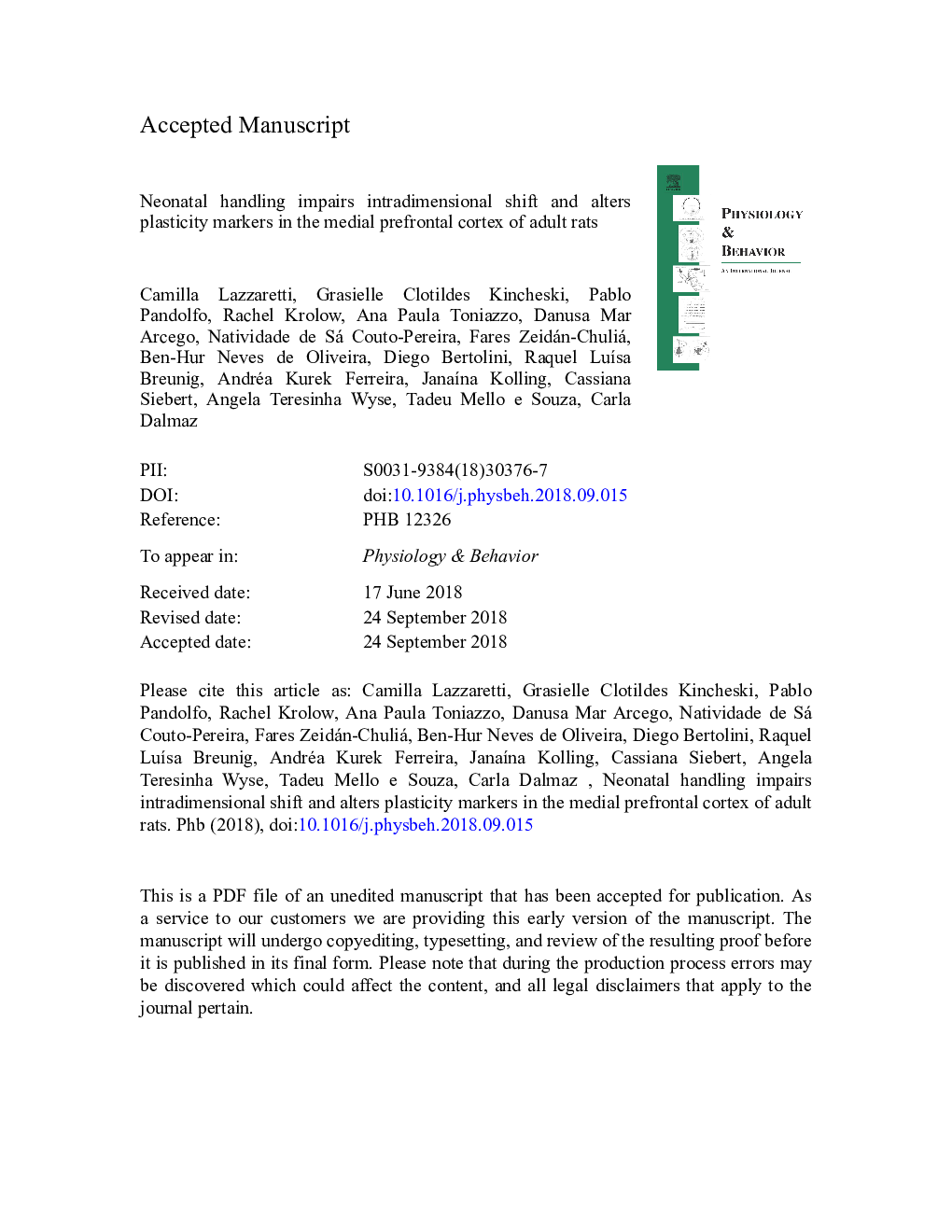| Article ID | Journal | Published Year | Pages | File Type |
|---|---|---|---|---|
| 11025596 | Physiology & Behavior | 2018 | 36 Pages |
Abstract
Stress response can be modulated by neonatal/childhood events. Neonatal handling (NH) is an animal model in which the animals are subjected to brief separations from the dam during the first days of life, and it leads to lower emotionality and behavioral changes in adulthood. The aim of this study was to observe if early events, such as (NH), may program associative learning and behavioral flexibility in adult male rats and if these changes could be related to altered neurochemistry in the medial prefrontal cortex (mPFC). We evaluated proteins related to synaptic plasticity (brain-derived neurotrophic factor [BDNF] and synaptophysin [SYP]) as well as Na+/K+-ATPase activity. Additionally, we evaluated proteins related to the dopaminergic system (tyrosine hydroxylase [TH] and phosphorylated TH [pTH]), since this system appears to be affected in some neonatal interventions. Neonatally handled animals exhibited impairment in simple discrimination and intradimensional shift but not in reversal or compound discrimination; in addition, no alteration in switching from an egocentric spatial to a cued strategy was observed. These effects were accompanied by a decrease in SYP levels and Na+/K+-ATPase activity, suggesting reduced synaptic function. These results indicate that NH increases attention to irrelevant stimuli and/or impairs associative learning, and this is accompanied by neurochemical alterations in the (mPFC).
Keywords
Related Topics
Life Sciences
Biochemistry, Genetics and Molecular Biology
Physiology
Authors
Camilla Lazzaretti, Grasielle Clotildes Kincheski, Pablo Pandolfo, Rachel Krolow, Ana Paula Toniazzo, Danusa Mar Arcego, Natividade de Sá Couto-Pereira, Fares Zeidán-Chuliá, Ben-Hur Neves de Oliveira, Diego Bertolini, Raquel LuÃsa Breunig,
